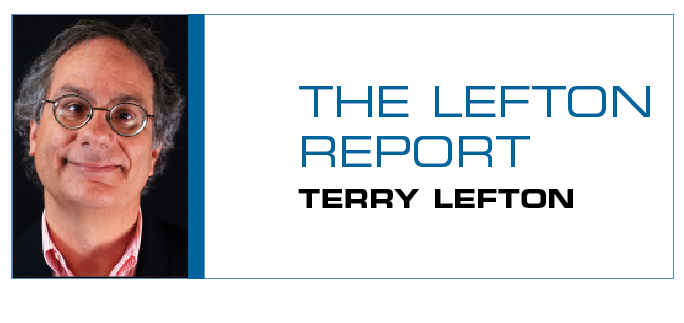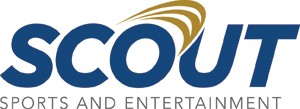What’s left of
Barry Bonds’ reputation has been dragged through a federal courtroom recently with the fervor of a janitor wielding an industrial mop on his floor of the day. It’s a trial in which the outcome will have less to do with the perjury charges at hand and more with determining whether the man who broke baseball’s most cherished records will ever be known as the era’s greatest hitter, or will instead be remembered as the most vilified from a generation of performance-enhancing-drug abusers.
The die is probably already cast, with Roger Clemens, the era’s pre-eminent pitcher, escaping much of the blame that has transformed Bonds into the poster child of steroid abuse. It didn’t have to be this way, but that’s a matter of choice for players who risked (or risk) using the PEDs that have become Bonds’ crucible.
| 
GETTY IMAGES
Barry Bonds (left) is on trial for perjury, but sponsors rendered their verdict long ago. |
Now no marketer, nor any baseball team, will employ Bonds, even though
Babe Ruth and
Henry Aaron played well past their prime after establishing the same home-run records. From our vantage point on the porch at the corner of sports and commercial exploitation, the most fascinating thing about Bonds is that four years before steroid-tainted MLB players testified before Congress, Bonds nearly became synonymous with another drug, as the original MLB pitchman for
Viagra. Only a Sports Illustrated column excoriating Bonds prevented him from signing a deal with pharmaceutical giant
Pfizer that would have paid him between $250,000 and $3 million a year over three years (two sources involved disputed the amount) to acknowledge that he used Viagra, which was an MLB corporate sponsor from 2002 to ’06 and was badly in need of a player to lend additional credibility to the first erectile dysfunction drug. Following the endorsement of Sen.
Bob Dole, NASCAR’s
Mark Martin was Viagra’s first athlete endorser, but he did not clearly endorse the drug as a user.
It was the 2001 season, the year Bonds was pursuing and would eventually break the single-season home-run record of 70 set by Mark McGwire three years prior. A month or two into the season, Pfizer sports agency Octagon reached out to Bonds through a variety of sources; Bonds told one of them that he’d already used and enjoyed Viagra. The stigma of admitting use of the drug was not an issue then; ironically, in the perjury trial it is the pro forma issue.
One source involved in the negotiations recalled that terms with Bonds were agreed upon relatively quickly. Other contract points were negotiated over a three-month period, and “by around midway through the season, we had a deal in place,” with plans for an ad or ads that would have broken during the MLB postseason in October, the source said.
Bonds’ unusually toxic combination of celebrity and petulance made him a favorite target of Rick Reilly, then a weekly essayist on SI’s final edit page. The Bonds/Viagra endorsement was killed by an Aug. 21, 2001, column in which Reilly noted that “there’s 24 teammates, and there’s Barry Bonds.” Describing Bonds’ demeanor, which might be graciously characterized as surly, Reilly noted that, “Someday, they’ll be able to hold Bonds’ funeral in a fitting room.” Bonds’ most accomplished teammate at the time, reigning NL MVP Jeff Kent, was described by Reilly as someone “who wouldn’t spit on Bonds if Bonds were on fire.”
Once that column was read by senior executives at Pfizer, it was enough to make the deal go soft. Soon after, Pfizer killed the deal, subsequently mounting a new search that included serious conversations with players Tom Glavine and Matt Williams before settling on Rafael Palmeiro, who signed in the fall and filmed an ad during spring training that debuted during the 2002 season. “My joke was that I did a performance-enhancing drug deal with Palmeiro,” said one marketer involved in the deal. Palmeiro told Congress in 2005 that he’d never taken steroids. He maintained his innocence five months later when MLB suspended him for steroid abuse. Palmeiro, a man with more than 3,000 hits and 500 home runs over 20 years in the big leagues, never had another MLB at bat after the 2005 season. Does all that sound distressingly familiar?
It’s hard to believe anything would have been different if Bonds had been Viagra’s first MLB endorser. Still, anything that humanized Bonds might have helped.
“I suppose the Viagra deal could have helped his image a little, since it’s admitting a problem,” said political advertising consultant Jimmy Siegel, who was executive creative director at BBDO, New York, when the agency filmed a Bonds spot for Charles Schwab in 2002. “But clearly the steroids thing has junked any chance for him as an endorser.”
NEW HORIZON: Some four months after establishing an in-house sports and entertainment marketing practice, Horizon Media is giving that unit more legs, with a separate identity.
Scout Sports and Entertainment has about 16 employees, and Michael Neuman, who founded the practice late last year as managing partner of sports, entertainment and events, said the employee count will increase to 25 by the end of 2011. The group buys more than $300 million in sports assets: media, sponsorships and integrated broadcast messaging. With some exceptions, like insurance and other categories where Horizon has large entrenched clients, Scout will able to solicit business from outside the agency, Neuman said. “That was a big impetus for creating a separate brand name,” he said.
Agency clients being serviced by Scout under Neuman and managing directors Joy Seijas and Colleen Fitzgerald include Geico, Horizon’s largest client, which has a multitude of sports sponsorships, including its deals with the NHL and Madison Square Garden, and a number of NFL and college team deals. For The History Channel, Scout negotiated title sponsorship of the Top Gear 300 Nationwide Series Race at Charlotte on May 28. Scout also supports the sports efforts of Crown Imports’ Corona brands, and those of Jack in the Box.
Terry Lefton can be reached at tlefton@sportsbusinessjournal.com.






